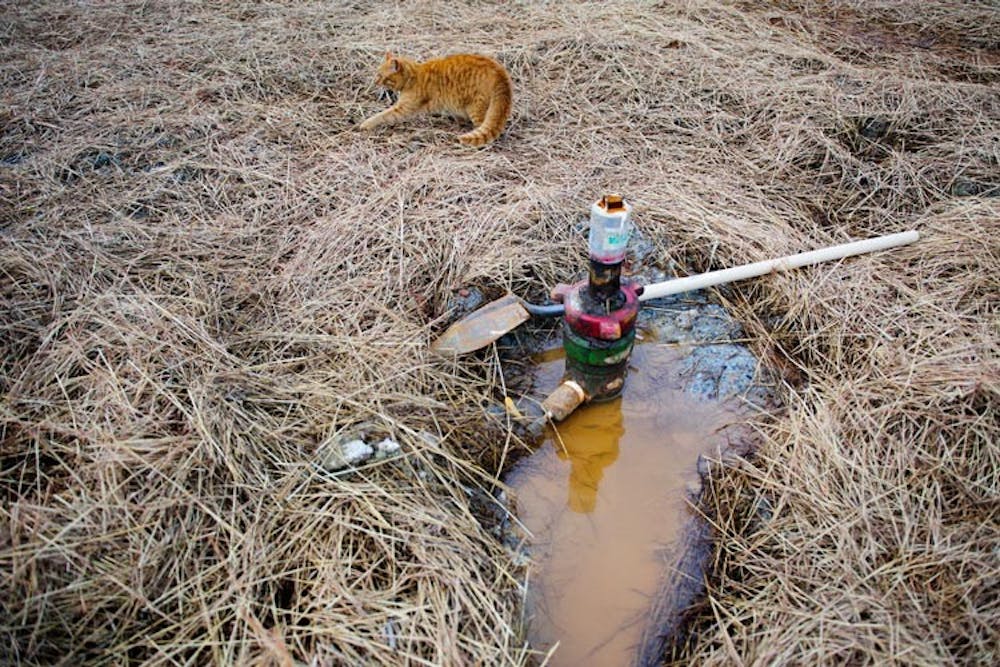A recent Environmental Protection Agency study on fracking has locals skeptical about the study’s findings denouncing fracking’s effects on water.
Local critics of a recent Environmental Protection Agency study on fracking are far from convinced of the study’s findings denouncing fracking’s effects on water.
The EPA announced June 4 in the much-anticipated study that hydraulic fracturing, or fracking, does not cause “widespread, systemic” drinking water pollution.
Heather Cantino, a member of the steering committee of Athens County Fracking Action Network, pointed out that while the study has led many to believe that there are no impacts on water from fracking, the EPA did not gather enough data to form such conclusions.
She also pointed out that the agency did find mechanisms in fracking, both above and below ground, for impacts and instances in which the mechanisms did cause contamination.
{{tncms-asset app="editorial" id="29a5d64a-e396-11e4-a996-73157640b251"}}
Cantino described this as a “poor study constrained by industry demands,” blaming this on inadequate data. She said the EPA failed to do prospective studies, providing just an overview of existing information from limited resources such as oil and gas companies, which bar access to crucial information.
“The industry restricts a lot of information from being shared,” Cantino said. “And many companies blocked the agency’s ability to get information that the industry does have.”
Cantino referenced Stanford University environment and energy professor, Robert Jackson, who similarly criticized the EPA’s handling of information.
“It’s comprehensive in its treatment of of the literature, but it’s not very comprehensive in bringing new research or data from the field,” Jackson said in an online June 5 Inside Climate News article. “They didn’t do prospective studies, they didn’t do well monitoring, they didn’t do much field research. I don’t feel like we have a lot of new information here.”
{{tncms-asset app="editorial" id="9b579b44-0fd7-11e5-a924-f79693367945"}}
Athens County Commissioner Chris Chmiel said in an email that he was concerned about the lack of emphasis placed on waste water that occurs during the fracking process.
“This is of concern to me as an Athens County Commissioner because Athens County is moving up the list of top injection well sites in the state and region,” he said. “To me the bottom line is that injection well waste is a problem that needs to be addressed.”
Chmiel also suspects that there is too much emphasis placed on economic development of the oil and gas industry in Ohio, resulting in the disregard for the potential harms.
Cantino was similarly disappointed by the lack of information presented in the study about air pollution from frack waste injection, having witnessed the symptoms caused by frack waste fumes.
She referenced ten large tanks of frack waste that sit on a hill above a neighborhood near Torch, Ohio, a small community in Athens County.
“They vent toxic radioactive vapors 24 hours a day into the neighborhood,” she said. “I’ve personally stood in the front yard of a neighbor and experienced lightheadedness and irritated throat within half an hour of being there.”
Cantino added that it is important to note that water is being consumed, rather than used, as water that has been fracked cannot go back into the hydrologic cycle due to its toxicity.
“Each time a well is fracked, it can use up to 5 million gallons of water, and a well can be fracked multiple times.”
aw120713@ohio.edu
@Alisa_Warren






